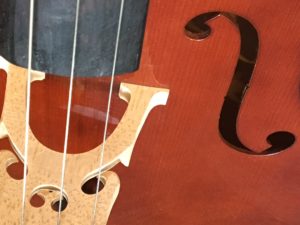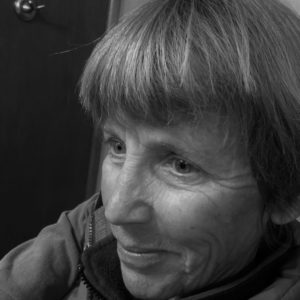 The year I played the cello was the same year I voted for Nixon, and if I had to say which one was the greater act of conviction I’m afraid I’d have to go with Nixon. Tricky Dick had not yet earned his name because in that particular election he did not become the president of the United States. The Senator from Massachusetts did. John F. Kennedy. I was only 7 years old, a third-grader who knew as little about politics as she did about music. We had a classroom election (heads down on the desk, arms raised for our preferred candidate) and I voted for the guy whose name I’d heard at the breakfast table. Besides that, I didn’t know a single other word that had an x in the middle of it. That was reason enough for me to go with Nixon.
The year I played the cello was the same year I voted for Nixon, and if I had to say which one was the greater act of conviction I’m afraid I’d have to go with Nixon. Tricky Dick had not yet earned his name because in that particular election he did not become the president of the United States. The Senator from Massachusetts did. John F. Kennedy. I was only 7 years old, a third-grader who knew as little about politics as she did about music. We had a classroom election (heads down on the desk, arms raised for our preferred candidate) and I voted for the guy whose name I’d heard at the breakfast table. Besides that, I didn’t know a single other word that had an x in the middle of it. That was reason enough for me to go with Nixon.
The cello business was presented as a choice as well. Every student in my school had to spend their third-grade year in close proximity to either a violin or a cello—that was the extent of our exercise of free will. Miss Havey, our terrifying music teacher, would instruct us in our particular instrument until, over the weeks and months, we would gain the confidence to play in a recital. If we didn’t gain the confidence, we’d play in the recital anyway. It was a diabolical prospect, but I was used to such Machiavellian traps. Even as early as third grade, that’s what school represented to me: Yet another opportunity for humiliation.
My reason for choosing the cello was simple: My older sister had gone with the violin and I made a rule of doing everything she didn’t, or at least doing nothing she did. I also felt some attraction to the largeness of the cello and its human-like form. To play it I had to put my arm around its waist. This was surprising and comforting. And I liked its deep voice. The violin, on the other hand, was a squeaky little thing, particularly in the hands of beginners. Its shape reminded me, oddly, of the body of a dead fox. Had I ever seen a dead fox? I imagined something hairless and stiff, something mummified and leathery tucked under the chins of the violin students. It was an easy decision. I would go with the cello.
Miss Havey was an imposing woman. She was tall and solidly built and had a dangerous smile. We understood her smile to mean Watch your step and I will deal with you later. She had a full head of white hair and it was in music class that I first learned about dandruff. I learned it from Miss Havey herself who took the time to answer my question about the snowfall on her shoulders with the relatively kind words, “You’re quite an observer, aren’t you. You notice things. Now go back to your seat and let’s focus all our attention on learning to play our instrument.”
No one in my family was a natural musician. No one could hold a note yet we hummed and whistled tunelessly, sang loudly in the shower and in church if the organist was heavy-handed. As if to inspire us, every Sunday morning my father woke us up with the William Tell Overture turned up high on the Victrola. Someone else might have imagined hoof beats and horses and the thrill of riding fast alongside the Lone Ranger, but the volume and urgency of the music only made me anxious. We had a piano and a soft-spoken piano teacher named Mr. Martori. He wore a well-made suit and bright black shoes and always had a feminine smell about him that my mother said was a kind of men’s cologne. My brothers and sisters took lessons but I couldn’t imagine sitting that close to him on the piano bench or smelling his cologne for 45 minutes or having to tell him I hadn’t practiced or lying that I had. He was the sort of man I thought might cry with disappointment, a disappointment for which I’d be responsible. So along the way I never learned to read the inscrutable language of music, those notes on the page Miss Havey assured us would soon be easy to decode. But something happened in that year I played the cello. Something that was hovering in the shadows came forward and came clear.
It seemed to come through the wood of the instrument itself. The wood felt fragile yet strong as thunder. It shone with a blond patina, polished by the touch of so many third-grade students. The strings—catgut we learned—were as wily and uncooperative as cats themselves, but the wood was happy to be held by us and gave no resistance. The sound of the cello depended on the play of tension—quivering strings bowed and plied—resounding in the relaxed and spacious belly of the instrument. The more I listened, my ear along the neck of my cello, the more I heard. I was a terrible plier and player. I was a wretched musician. But my new understanding had little to do with music as sound; instead I was learning about the mechanisms of expression. I was discovering a voice that was not a singing voice, but a voice just the same. The cello was teaching me a way to express, to write, to sing out stories into the world. Tension and release. Those were the necessary ingredients for any art. Withholding and revealing. Constricting and expanding. The build-up, the crescendo, the return.
I was just 7 years old so these thoughts were shapeless and unarticulated, recognizable only in hindsight. What I did know was that all of a sudden I became very happy. I became especially happy when in music class I got to sit with my cello close against my chest, take up the bow, squeeze out a few growling chords and feel the air around me lighten and expand. Happiness was the measure of my new understanding. It was my 7-year-old currency. I felt rich because of it and I started to write. Stories, plays, poems, limericks, palindromes—I traded the indecipherable language of music for the music of language. I was an unstoppable genius with a pencil, a wild child with a new way to make herself heard, a way to harness happiness and every other emotion, an urgency to make the page sing.

